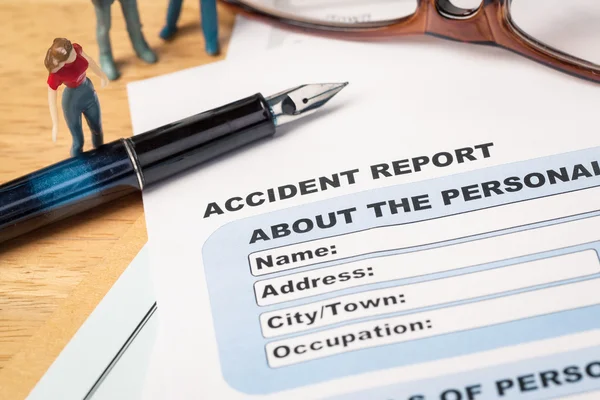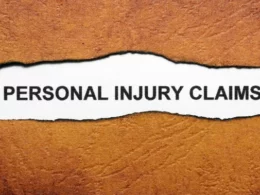If you have been involved in an accident and are wondering if you can still claim compensation after three years, the answer is, unfortunately, not straightforward. The time limit for making a claim varies depending on the type of accident you were involved in and the state you live in.
Generally, the time limit for filing a claim after a car accident is two to six years, depending on your state. However, in some cases, the time limit may be shorter.
For example, if you were involved in an accident with a government agency, you may have as little as six months to file a claim. It’s important to check your state’s statute of limitations to determine the time limit for your specific case.
It’s worth noting that even if you are within the time limit to file a claim, it may be more difficult to receive compensation the longer you wait. Evidence may be harder to obtain or witnesses may be difficult to locate. Additionally, insurance companies may be more skeptical of claims made years after an accident.
What Is A Statute of Limitation?
When it comes to filing an accident claim, time is of the essence. The time limit within which you can file a claim is known as the statute of limitations. This is a legal term that determines the maximum time period within which you can file a claim for compensation after an accident.
State Statute of Limitations for Accident Claims
Each state has its own statute of limitations for accident claims. This time limit can vary depending on the type of accident and the state you are in.
For instance, in some states, the statute of limitations for car accidents is two years, while in others, it can be as long as six years. It is important to know the statute of limitations in your state so that you can file your claim within the required time frame.
Why is it Important to File an Accident Claim within the Time Limit?
Failing to file an accident claim within the statute of limitations can have serious consequences. If you miss the deadline, you may lose your right to file a claim altogether.
This means that you will not be able to recover any compensation for your injuries, lost wages, or other damages related to the accident.
It is crucial to act quickly and file your claim as soon as possible to avoid missing the deadline. In addition to the time limit, it is also essential to understand the role of insurance in the claims process.
Your insurance policy may have its own time limit for filing a claim after an accident. It is essential to check your policy and file your claim within the required time frame to ensure that you are covered for any damages or losses.
To sum up, understanding the time limit for filing an accident claim is crucial. The statute of limitations varies by state and type of accident, so it is important to know the specific time frame in your state. Filing your claim within the required time frame is essential to ensure that you are able to recover compensation for your injuries and damages related to the accident.
What Happens if You Delay Filing an Accident Claim?
You have to know what happens when you delay in filing an accident claim because it is useful information.
The Consequences of Delaying an Accident Claim
If you delay filing an accident claim, you risk losing the chance to receive compensation for your damages. Most states have a statute of limitations that sets a deadline for filing an accident claim.
If you miss this deadline, you may not be able to file a claim at all. The deadline varies from state to state, but it typically ranges from one to three years from the date of the accident.
Can You Still File a Claim After the Time Limit?
If you miss the deadline for filing an accident claim, you may be out of luck. However, there are some exceptions to the deadline that may allow you to file a claim after the time limit.
Here’s a good example, supposing you were a minor at the time of the accident, the statute of limitations may not begin until you turn 18. Additionally, if you were mentally incapacitated at the time of the accident, the statute of limitations may be extended.
Exceptions to the Time Limit for Filing an Accident Claim
In some cases, the statute of limitations for filing an accident claim may be extended.
Let’s say for example, if the person responsible for the accident leaves the state after the accident, the statute of limitations may be extended until they return.
Furthermore, if the person responsible for the accident is a government employee or agency, the statute of limitations may be shorter or longer than the standard deadline. It’s important to check the laws in your state to determine if there are any exceptions that apply to your situation.
Basically the overall idea from this is simply to help understand that it is crucial to file an accident claim as soon as possible to ensure that you receive compensation for your damages.
If you delay filing a claim, you risk losing the chance to receive compensation altogether. If you have any questions about the deadline for filing an accident claim in your state, it’s best to consult with an attorney who specializes in personal injury law.
Filing an Accident Claim
If you’ve been involved in a car accident, you may be wondering if you can still file a claim after three years. While the answer to this question varies depending on the circumstances of your accident, it’s important to know what steps to take if you decide to file a claim.
Steps to Follow When Filing an Accident Claim
The first step in filing an accident claim is to report the accident to the police. This will help ensure that there is an official record of the accident, which can be useful when filing your claim.
You should also exchange contact and insurance information with the other driver involved in the accident, as well as any witnesses.
Once you have reported the accident to the police and exchanged information with the other driver, you should contact your insurance company to report the accident.
Your insurance company will likely ask you to provide a copy of the police report, as well as any other evidence you have gathered.
Gathering Evidence for Your Accident Claim
When filing an accident claim, it’s essential to gather as much evidence as possible to support your claim. This may include photos of the damage to your vehicle and any injuries you sustained, as well as witness statements and medical records.
You should also keep track of any expenses related to the accident, such as medical bills and repair costs.
What Damages Can You Claim in an Accident?
If you decide to file an accident claim, you may be able to claim damages for a variety of losses, including property damage, medical expenses, lost wages, and pain and suffering.
The specific damages you can claim will depend on the circumstances of your accident and the terms of your insurance policy.
How to Deal with Insurance Companies
When dealing with insurance companies, it’s important to be honest and forthcoming about the details of your accident. You should also be prepared to provide any evidence or documentation that the insurance company requests.
If you feel that the insurance company is not offering you a fair settlement, you may want to consider hiring a personal injury attorney to help you negotiate.
What to Do if the At-Fault Driver is Uninsured
If the driver who caused your accident is uninsured, you may still be able to file a claim through your own insurance company.
Depending on the terms of your policy, you may be able to file a bodily injury claim, a comprehensive claim, or both.
You may also be able to seek reimbursement for your losses through a personal injury claim against the at-fault driver.
Overall, if you decide to file an accident claim, it’s essential to do so within a reasonable time frame. While the timeline for filing a claim varies depending on the circumstances of your accident and the laws in your state, it’s generally a good idea to file your claim as soon as possible to ensure that you receive the compensation you deserve.
State-Specific Laws on Accident Claims
When it comes to filing a personal injury claim after an accident, each state has its own set of laws and regulations. These laws determine how long you have to file a claim, how much compensation you can receive, and what types of damages you can recover. It’s important to understand the laws in your state to ensure that you receive fair compensation for your injuries.
Here are a few state laws from some select states:
Filing a Personal Injury Claim in California
In California, the statute of limitations for personal injury claims is two years from the date of the accident. This means that you have two years from the date of the accident to file a claim for compensation.
Although there are exceptions to this rule, such as cases involving government entities, so it’s important to consult with a personal injury attorney to determine the specific time limits that apply to your case.
Filing a Personal Injury Claim in Florida
In Florida, the statute of limitations for personal injury claims is four years from the date of the accident. However, if the accident involves a government entity or employee, you may have as little as six months to file a claim. It’s important to speak with a personal injury attorney as soon as possible to ensure that you don’t miss any important deadlines.
Filing a Personal Injury Claim in Georgia
In Georgia, the statute of limitations for personal injury claims is two years from the date of the accident. However, if the accident involves a government entity, you may have as little as six months to file a claim. It’s imperative to consult with a personal injury attorney to determine the specific time limits that apply to your case.
Filing a Personal Injury Claim in Hawaii
In Hawaii, the statute of limitations for personal injury claims is two years from the date of the accident. Nonetheless, if the accident involves a government entity, you may have as little as six months to file a claim. It’s essential to speak with a personal injury attorney as soon as possible to ensure that you don’t miss any important deadlines.
Filing a Personal Injury Claim in Kansas
In Kansas, the statute of limitations for personal injury claims is two years from the date of the accident. Nevertheless, if the accident involves a government entity, you may have as little as 120 days to file a claim. It’s vital to consult with a personal injury attorney to determine the specific time limits that apply to your case.
Filing a Personal Injury Claim in Kentucky
In Kentucky, the statute of limitations for personal injury claims is one year from the date of the accident. However, if the accident involves a government entity, you may have as little as one year to file a claim. It’s essential to speak with a personal injury attorney as soon as possible to ensure that you don’t miss any critical deadlines.
Filing a Personal Injury Claim in Louisiana
In Louisiana, the statute of limitations for personal injury claims is one year from the date of the accident. However, if the accident involves a government entity, you may have as little as 90 days to file a claim. It’s important to consult with a personal injury attorney to determine the specific time limits that apply to your case.
Filing a Personal Injury Claim in Maine
In Maine, the statute of limitations for personal injury claims is six years from the date of the accident. Moreover, if the accident involves a government entity, you may have as little as 180 days to file a claim. It’s crucial to speak with a personal injury attorney as soon as possible to ensure that you don’t miss any important deadlines.
Filing a Personal Injury Claim in Massachusetts
In Massachusetts, the statute of limitations for personal injury claims is three years from the date of the accident. However, if the accident involves a government entity, you may have as little as 30 days to file a claim. It’s important to consult with a personal injury attorney to determine the specific time limits that apply to your case.
Filing a Personal Injury Claim in Michigan
In Michigan, the statute of limitations for personal injury claims is three years from the date of the accident. However, if the accident involves a government entity, you may have as little as six months to file a claim. It’s fundamental to speak with a personal injury attorney as soon as possible to ensure that you don’t miss any important deadlines.
Filing a Personal Injury Claim in Minnesota
In Minnesota, the statute of limitations for personal injury claims is two years from the date of the accident. However, if the accident involves a government entity, you may have as little as 180 days to file a claim.
Conclusion
While the general rule is that personal injury claims must be filed within a specific number of years from the date of the accident, there are some exceptions to this rule that may extend the time limit.
Nonetheless, it is essential that you seek legal advice as soon as possible to determine your eligibility for compensation and to ensure that your claim is filed within the appropriate time frame. Remember, every case is unique and the outcome will depend on the specific circumstances of your case.
YOU SHOULD ALSO READ:
- Road Traffic Personal Injury Claims: A Comprehensive Guide
- Can You Get Legal Aid for Personal Injury Claims? Explained
- Personal Injury Claim Medical Examination: What to Expect and How to Prepare
- Personal Injury Claim: What You Need to Know About Broken Ankle Cases
- Personal Injury vs. Medical Negligence: Understanding the Key Differences












